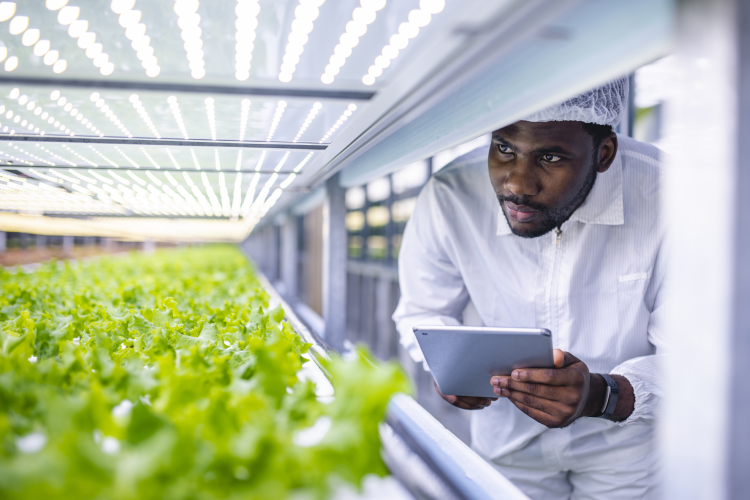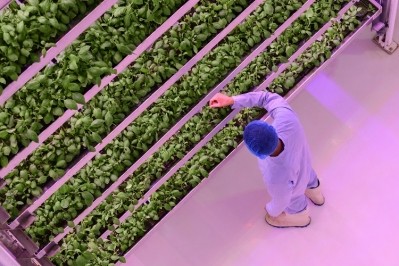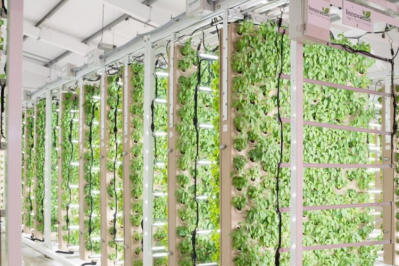Vertical farms launch Manifesto: ‘It has never been more important for us to define who we are and what we stand for’

The Vertical Farming World Congress in Brussels earlier this month saw industry leaders come together in a show of unity behind what they described as ‘clear and bold industry standards’.
The first ever Vertical Farming Manifesto and Identity Statement were launched at the event. These are important documents for the burgeoning sector, highlighting the impact and contribution the industry intends to make to transform current food systems and help to solve one of humanity’s 'toughest challenges' -- providing food for a growing population in a sustainable, circular way.
“For the continued existence of humanity and protection of the earth, the expansion, development and collaboration of the vertical farming industry is critical. We are proud and excited to be working together with our industry peers on the VF Identity Statement and Industry Manifesto,” explained signatory Crop One’s CEO Craig Ratajczyk.
“We are running out of the resources to produce the food we need responsibly, sustainably, and affordably,” agreed CubicFarms CEO Dave Dinesen. “We believe to protect our resources and ourselves, food and feed must be localized and grown indoors by farmers. We are proud to join and work with our industry peers to highlight the need to democratize farming and to create local independent food ecosystems now and for future generations.”
A shared ambition for local, healthy and sustainable food
Suffice to say, the vertical farm companies signing up to the industry standards are aligned behind a vision for vertical farming that contributes to a sustainable, safe and resilient food system.
The Vertical Farming Identity and the Manifesto describe the urgency of transforming current food systems and explain how vertical farming models can contribute to designing food systems that are resilient and future-proof.
“Tech-driven agriculture solutions have so much potential to positively affect the global food system,” suggested Austin Webb, CEO and Co-Founder of Fifth Season. Through technological innovation, indoor vertical farming can decouple food production from external factors like climate or public health crises, the vertical farming coalition believes.
The sector also offers the possibility of bringing production closer to urban consumers. By localising production and controlling the growing environment, vertical farming provides pesticide-free produce, uses significantly less land and water, and requires fewer transportation miles, they stressed. “Vertical farming technology can make fresh, local, sustainably grown food accessible to everyone. The potential is incredible, but we can only live up to it if we grow thoughtfully, taking the quality of our business practices as seriously as we do the quality of our produce,” enthused Tisha Livingston, CEO of Infinite Acres.
Collaborating for purpose and acceleration
But why is an industry manifesto necessary? And why now?
“As money pours into the vertical farming industry and media attention follows, it has never been more important for us to define who we are and what we stand for,” explained Mike Zelkind, CEO, 80 Acres Farms. “Our customers trust that we grow as sustainably as possible, ensuring a consistent food supply for generations to come. With this manifesto, we are affirming that as an industry.”
Bringing the industry together with one voice isn’t just about setting agreed common standards. It also means that the sector is able to more effectively advocate for its vision of what a sustainable food system looks like, according to James Lloyd-Jones CEO of UK-based Jones Food Company.
“As our industry continues to grow it is crucial that we, alongside our colleagues around the world, present a united vision for what we are striving to achieve,” he suggested. “Together our voices are amplified, championing the numerous benefits of vertical farming and what we have to offer the global food system, namely; growing more of the most delicious fresh food, whilst using far fewer natural resources and bringing us closer to the food we eat."
The standards laid out in the Manifesto are aligned with globally accepted impact frameworks, for example, the Science Based Targets initiative (SBTi), B Corp, or the United Nations Sustainable Development Goals (SDGs). The industry stressed it is also dedicated to continuously investing in research and development to improve vertical farming technology and grow even smarter and more sustainable food systems.
Collaboration can accelerate this, according to Urban Crop Solutions. “Our industry has demonstrated its early potential, but there is much yet to be realised as we continue to innovate. At Urban Crop Solutions, we continuously strive to make the entire indoor farming journey more circular, and to demonstrate our added value for new and emerging food production methods. As with any nascent industry, open and close collaboration is necessary, especially where sustainability is concerned,” said Maarten Vandecruys, Founder, Urban Crop Solutions.
Signing companies are 80 Acres, AeroFarms, Bowery, Crop One, CubicFarms, Elevate Farms, Fifth Season, Fischer Farms, Freight Farms, Infarm, Infinite Acres, Jones Food Company, Kalera, La Grangette, Ljusgårda, N.THING, Plenty, Stacked Farm, Urban Crop Solutions, Urban Harvest, Vertical Future, YesHealth Group and ZipGrow.


















